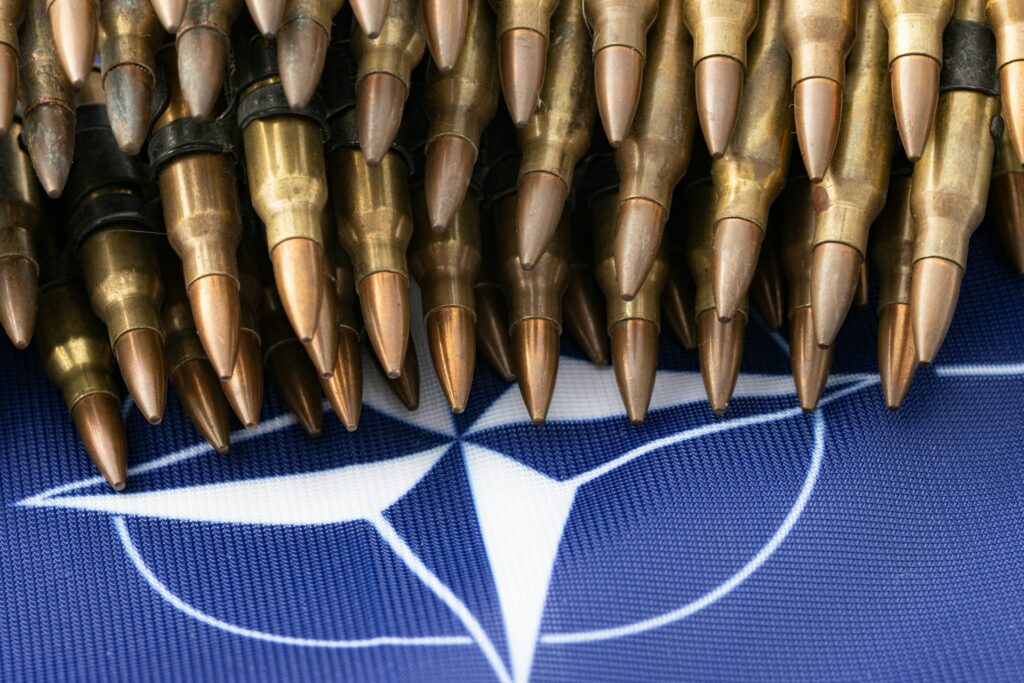
(Rightallegiance.com) –
Amidst the ongoing Israel-Hamas conflict, the United States once again found itself at the center of a contentious diplomatic showdown at the United Nations Security Council. With tensions escalating and civilian casualties mounting, the international community looked to the Security Council to broker a resolution that could bring an end to the violence and alleviate the humanitarian crisis gripping the region.
On this occasion, the focus was on a draft resolution put forward by Algeria, which called for an immediate humanitarian ceasefire. The proposal garnered significant support from thirteen council members, highlighting the urgency felt by many in addressing the dire situation unfolding in the region. However, the resolution faced a formidable obstacle in the form of a U.S. veto.
This marked the third time the United States exercised its veto power since the conflict erupted on October 7. The crux of the U.S. objection lay in its insistence on linking any ceasefire to the release of hostages held by Hamas, the militant group in control of the Gaza Strip. This stance diverged from the Algerian draft, which sought an immediate ceasefire and the unconditional release of hostages.
The debate that unfolded within the Security Council chamber encapsulated the complexities and sensitivities surrounding the Israel-Hamas conflict. Algeria’s U.N. Ambassador, Amar Bendjama, passionately argued that supporting the resolution was tantamount to affirming the Palestinians’ right to life. Conversely, the U.S. Ambassador to the U.N., Linda Thomas-Greenfield, voiced concerns that an unconditional ceasefire could inadvertently prolong the conflict by failing to address the underlying dynamics fueling the violence.
The aftermath of the U.S. veto saw a flurry of reactions from various stakeholders. Palestinian envoy Riyad Mansour decried the decision as a tacit endorsement of Israeli aggression, accusing the U.S. of enabling further bloodshed. In contrast, Israel’s U.N. Ambassador, Gilad Erdan, cautioned against viewing a ceasefire as a panacea, arguing that it could embolden Hamas and jeopardize Israel’s security.
In response to the impasse, the United States tabled its own resolution, signaling a potential shift in its approach to the conflict. Unlike previous iterations, the U.S. proposal called for a temporary ceasefire contingent on the release of hostages and the provision of humanitarian assistance. This marked a departure from the U.S.’s previous reluctance to use the term “ceasefire” in U.N. discussions, reflecting a recalibration of its diplomatic strategy in response to evolving circumstances on the ground.
The proposed resolution sought to strike a delicate balance between addressing immediate humanitarian needs and creating conditions conducive to a lasting cessation of hostilities. By emphasizing the release of hostages and the delivery of humanitarian aid, the U.S. aimed to lay the groundwork for substantive negotiations while averting the specter of a major ground offensive by Israel.
The broader context of U.S. involvement in the Israel-Hamas conflict underscored the intricacies of navigating geopolitical alliances and moral imperatives on the international stage. Historically, the United States has been a staunch ally of Israel, often shielding it from U.N. scrutiny and criticism. However, the humanitarian toll exacted by the conflict has prompted calls for a more nuanced approach that balances strategic interests with humanitarian concerns.
As the diplomatic wrangling continues, the plight of civilians caught in the crossfire remains a pressing concern. The conflict, which began with Hamas militants launching attacks on Israel, has exacted a heavy toll on both sides, with civilian casualties mounting and infrastructure decimated. Against this backdrop, the imperative of finding a sustainable solution that addresses the root causes of the conflict while upholding the principles of justice and human rights has never been more urgent.